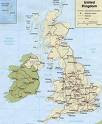
british island map:
- british island has an area of 229,850 km2
- is the largest island in Europe
- 200,000 years ago was a big peninsula of Europe
- United Kingdom has a temperate maritime climate
- temperature is 0 º C in the winter and do not exceed 32 º C in summer
- The Thames is a river in southern England. It's length is 340 km. Today is the most important river in England.
- The highest mountain in the United Kingdom, Ben Nevis (1,343 m), is located in the highlands of Scotland
- Lake District or the Lake District National Park is located northwest of Inglaterra. Lake Ness is a large and deep freshwater lake that is in Scotland, the United Kingdom.









